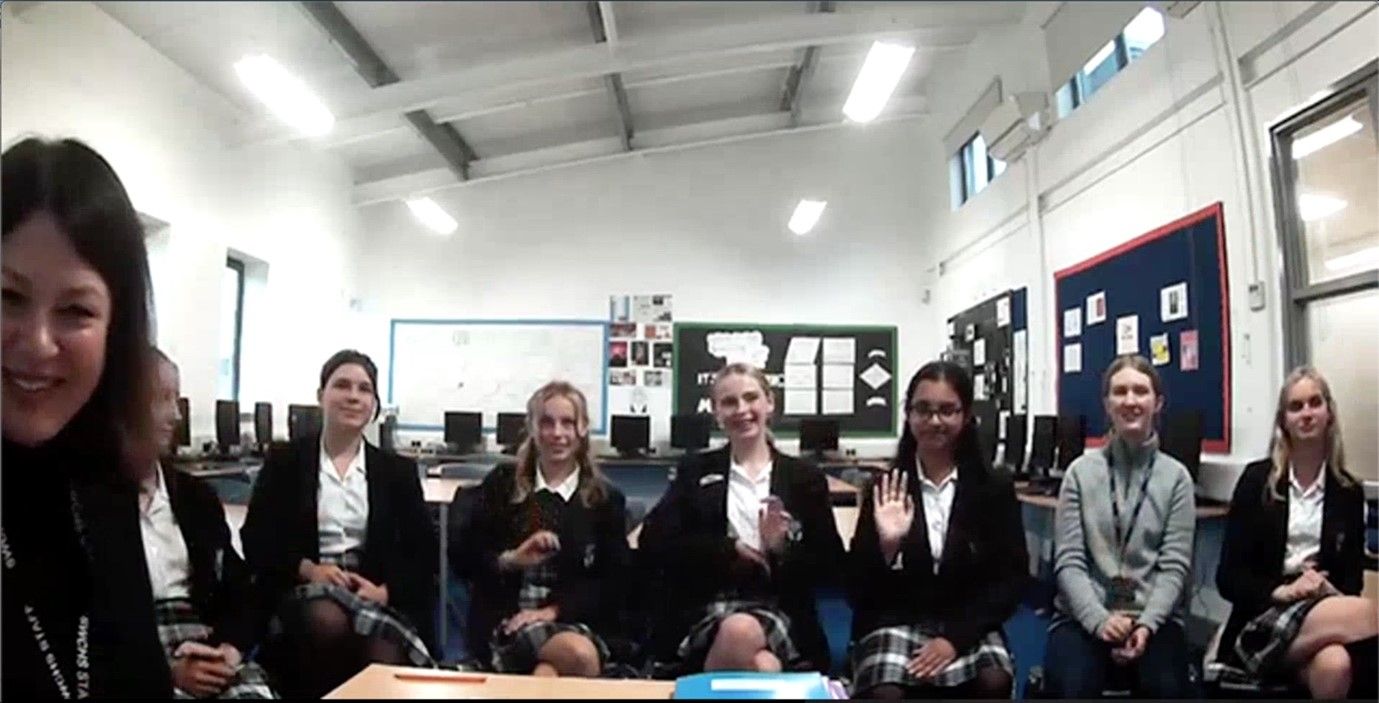Girls in STEM - Saffron Walden students discuss gender balance with Government Equality Hub
24 September 2021

Saffron Walden County High School is one of the NCCE's Computing Hubs and supports teachers across London, Hertfordshire and Essex. The Government’s Equality Hub chatted to some students and their teacher at the school. Read more about their experience:
With National Coding Week just passed, and Ada Lovelace Day coming up, this is a chance to raise awareness of inequalities in computer science careers, and look at what the Government’s Equality Hub is doing to address gender imbalance in STEM.
We chatted to seven students from Saffron Walden County High School. We discussed the girls’ experience learning coding and their aspirations for the future.
The girls, from Year 9 to Year 12, are eager computing students and aspire to go into careers ranging from fashion, medicine, law, and underwater engineering. Anna, Elspeth, Grace, Ella, Mayurii, Rachel and Emma had lots of questions to ask us and were excited to know about the Equality Hub’s work. Their teacher and Computing Hub Lead, Katie Vanderpere-Brown, says she works hard to amplify the female role models in computer science: for example, Margaret Hamilton and her work with the Apollo Mission.
Read about our conversation:
Q: “At what age did you start coding?”
Student: “In Year 7, I’m in Year 9 now. I really enjoyed it and I’ve just picked it as an option for GCSE.”
Q: “How did your friends react?”
Student: “Everyone said it was going to be really difficult but I’m up for a challenge. My family were quite proud because they know that I enjoy it.”
Their teacher, Katie, said:
“We’ve had some good success here getting girls to recognise the importance of, and pick, computer science at GCSE, but the problem is few consider it for their next step and don’t take it for their A levels. They can understand the value of learning to code, but few see it as a viable career. We’re trying to get across that computer science can be a part of many creative jobs, not just a programming career.
“Lots of students who take it have family members, older siblings, doing computer science. We need to find a way to reach those students who don’t have role models in coding in their home.”
Q: “What do you think some of the barriers are for computer science as a subject?”
Katie: “There’s a shortage of specialised computer science teachers. Where other teachers are covering computer science lessons, it shows students, particularly those who are shrewd, that this subject is not valued as much, or it isn’t someone’s full-time profession.
“Now that we have more textbooks, more words written in exercise books, computer science feels more like their other school subjects, like history. I think this helps them take it more seriously.
“There are only two girls in our Year 13 class of computer science, but more in Year 12, and making the choice in Year 11.”
Girls in computing
Encouraging girls to take STEM subjects at school is a huge part of improving women’s progression in STEM careers. There has been a 31% increase in girls’ entries to STEM A levels in England between 2010 and 2019. However, girls continue to make up a relatively small proportion of entries to maths (39%), physics (22%) and computing (13%).
The government is funding the Improving Gender Balance national research trial, led by the Institute of Physics, and the NCCE's Gender Balance in Computing Programme to investigate ways to understand and tackle a lack of female participation in STEM careers. It also supports programmes such as STEM Ambassadors – there are currently more than 33,000 STEM Ambassadors, and 52% of these are women.